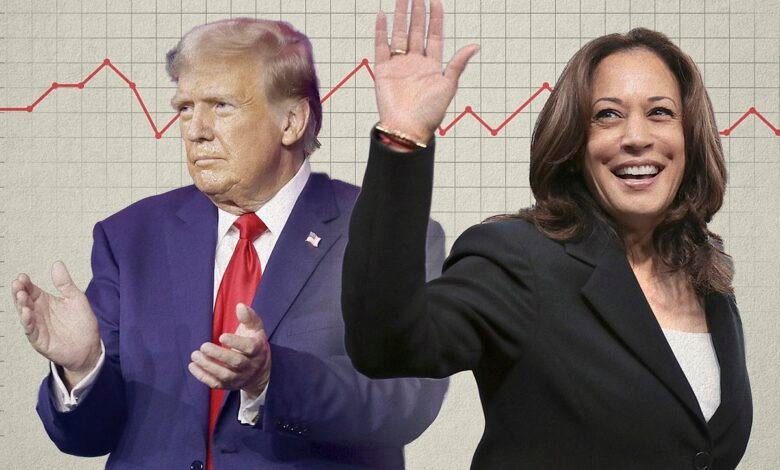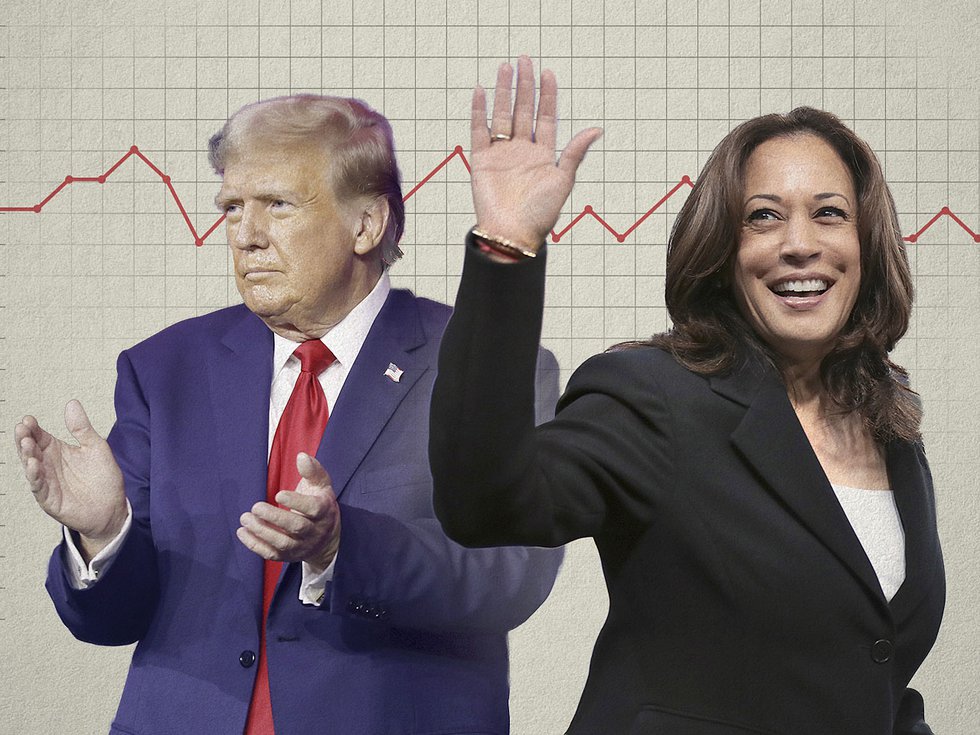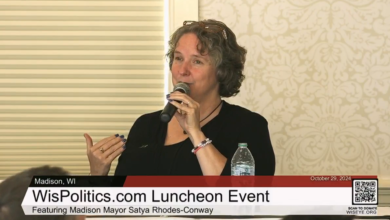Parties’ presidential campaigns trade momentum – Isthmus


The Republican National Convention in Milwaukee was only half over when Mordecai Lee, UW-Milwaukee professor emeritus and a former Democratic legislator, offered this blunt assessment: “Dems/Biden are toast.”
The party’s nominee for president, Donald Trump, had just survived an assassination attempt. An historic photo caught Trump shouting “Fight” as he was helped off the Pennsylvania rally stage. He picked an energetic 39-year-old Ohio senator, J.D. Vance, as his running mate. A federal judge dismissed criminal charges that Trump mishandled secret documents after leaving the White House. Democratic leaders were advising President Joe Biden to end his campaign for a second term.
One week later, Biden had dropped out. He and almost all other leading Democrats were endorsing Vice President Kamala Harris. Sending a message to the Trump/Vance ticket, Democrat donors had quickly committed $100 million to her campaign.
Professor Lee, what’s your new assessment?
“To my utter astonishment, the political impact of Trump’s survival of the shooting has dissipated almost entirely,” Lee says. “So much for tectonic events. It was a political tsunami, but then followed by another one: Biden to Harris. What I said [two weeks ago] is now wrong. So much for trying to predict the future based on today’s situation.
“I think what the media has missed was what likely prompted the timing of Biden’s decision,” he adds. “It was the assassination attempt, followed by the surge of support for Trump, followed by the well-staged RNC, followed by Trump’s (semi) conciliatory acceptance speech. For a pol like Biden, it was the last straw.”
With Nov. 5 now less than 100 days away, Lee calls the Trump-versus-Harris race “an even match-up.”
He explains: “Trying to view the political alignment dispassionately, Democrats always did well with women voters, now better. Trump always did well with men, now better. Age? Advantage Harris. Race? Advantage Trump. The big issue is if Harris can separate herself from Biden’s unpopularity. Easier said than done.”
There were several reasons Harris picked Milwaukee for her first campaign rally as the party’s presumptive nominee for president. “The path to the White House runs through Wisconsin,” she says.
Wisconsin is one of the few states that will pick the next president. Milwaukee’s African American voter turnout can decide statewide elections. Enthusiastic Wisconsin college students for Harris could be critical to winning the state. And Harris spent part of her childhood in Madison.
Before her Milwaukee visit, Wisconsin Republican Party Chairman Brian Schimming dismissed the Biden-to-Harris transition.
“Kamala Harris’ favorables are as bad as Joe Biden’s,” Schimming told reporters. “So they are exchanging one bad candidate for another bad candidate in the hope that the people of this state and this country don’t notice where she actually stands on the issues.”
Lee also offered a history-lesson footnote to the Democrats’ optimism.
“Remember 1968,” Lee cautions, when Democratic President Lyndon Johnson announced in March that he would not seek a second term. “First, Vice President Hubert Humphrey tried hard to separate himself from LBJ’s unpopular Vietnam war, but wasn’t willing to disavow him.
“Second, the continuing hostility of the peaceniks in the Democratic Party kept hurting Humphrey through the fall. The parallel is the hostility of the far-left — Gaza, social Democrats, soft-on-crime, etc. — to Harris. That could be enough to sink her, as it did Humphrey.
“Third, when an incumbent runs for reelection, voters often treat the election as a referendum on the incumbent’s record. Happy or unhappy? With no traditional incumbent this year, the tilt of the campaigns is more likely to focus on the future: ‘What would I do if you elect me?’”
Anthony Chergosky, a UW-La Crosse political science professor, says Wisconsin will still play a decisive role in the election.
“Even after the historic events, we’re still talking about the same six or seven key states…as being the focus of the election,” Chergosky says. “Wisconsin would remain right around the tipping point in the Electoral College.
“The key question is how the change at the top of the Democratic Party ticket changes the electoral map,” Chergosky adds. “Harris may boost the Democratic Party’s hopes in Nevada, Arizona and Georgia as she may perform better than Biden among young voters and voters of color.”
Who’s ahead? “The polls in my view indicate a highly competitive race with Trump perhaps being a modest favorite,” Chergosky says.
Steven Walters started covering the Capitol in 1988. Contact him at stevenscotwalters@gmail.com.



